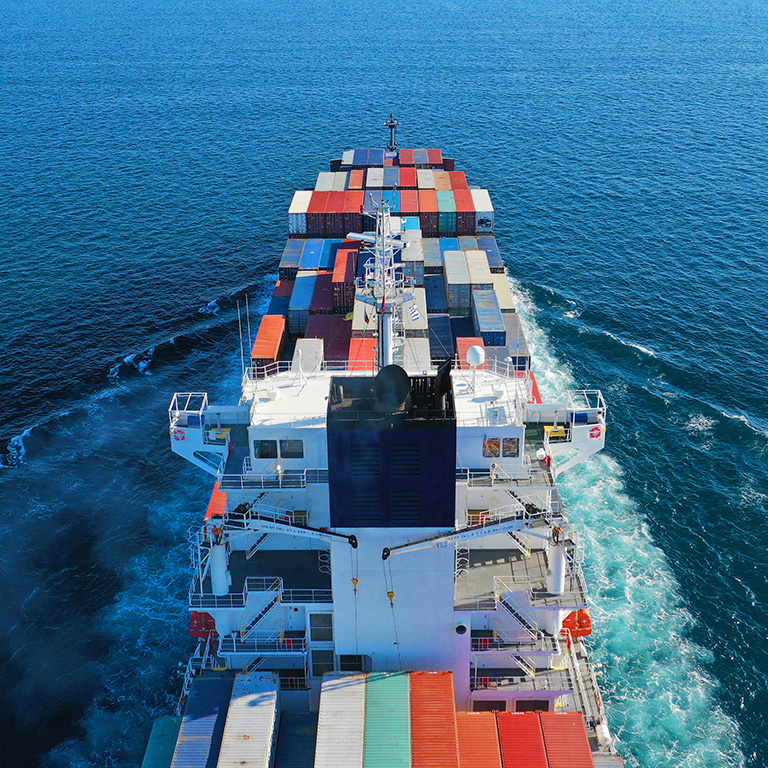
Stephen Harris
Senior Vice President, Technical Advisor, Marine & Cargo
The recent grounding and subsequent re-floating of the mega-ship Ever Given in the Suez Canal highlighted the fragility of global supply chains. This event snarled global marine traffic at a time when supply chains are still recovering from disruptions related to the COVID-19 pandemic.
Suez Canal handles 12% of global trade.
The Ever Given, a Panama registered ship built in 2018, is one of a new class of extremely large container ships. Its grounding on March 23, 2021 and its successful re-floating on March 29 highlighted the fragility of global supply chains. In 2019, container ships, of all sizes, carried approximately USD4 trillion of goods. The largest of these ships now range to 400 meters (1,312 feet) long and 59 meters (193 feet) wide, and are capable of carrying up to 24,000 20-foot equivalent unit (TEU) boxes on each voyage. The concentration of risk is clear.
While an official enquiry following this event is ongoing, there has been much speculation about its cause. According to a variety of media reports, the Ever Given was blown by strong winds and became stuck on the banks of and blocked the Suez Canal near its southern end. Approximately 12% of global trade uses the canal in a series of daily northbound and southbound convoys, carrying close to USD10 billion in goods per day, according to various public sources. The Suez Canal Authority temporarily suspended navigation in the canal until the obstruction was cleared.
It is too early to tell the extent of insurance claims that will arise from either the ship’s grounding or the canal’s blockage. Delays to goods reaching their intended destinations, including through using alternative routes, will impose additional costs, serving a reminder as to why such potential possibilities should be taken into account in risk finance planning.
Some insurance products can, under some circumstances, help to mitigate the risks. Marine delay cover is offered by a number of insurers. It is often possible, at the time of initial risk placement, to have such cover include a wider set of events should exposure to the consequences of a physical blockage along the route adversely affect their business.
Further, some companies face potential liabilities if they are unable to perform their contractual delivery responsibilities in a timely fashion. Events such as the Ever Given grounding highlight that such failure to perform may be both unexpected and outside a company’s control.
For ships and their cargo, the Ever Given grounding event raises a range of considerations, including, but not limited to:
It is possible that the biggest exposure to loss could arise from the blockage of the canal. Pure economic loss claims (such as reduced value of cargoes, purely as a result of their delayed arrival) are legally complex and the question of the appropriate forum will be key. For example, can a ship limit its liability under applicable laws in events such as this? Answers to such questions will be key in assessing the liability exposure for the ship owners and/or operators.
As the Suez Canal situation demonstrates, the blockage of any global maritime chokepoint, for any reason, will rapidly lead to ships either anchoring and waiting for re-opening or opting to re-route. Travel around South Africa would add up to 10 days to the journey if the route to Europe via the Suez Canal was not available, adding time, fuel costs, and increased exposure to known piracy and politically unstable areas.
Channels such as the Suez and Panama Canals, the Straits of Hormuz, the Bab-el-Mandeb, and the Straits of Malacca, are known chokepoints for the global economy. When any of them becomes blocked — whether through accidents or deliberate political events — there is a serious effect on the entire shipping industry and beyond.
The International Salvage Union (ISU) has for some years warned that the salvage industry is ill-equipped to handle accidents that occur at sea involving vessels as large as the Ever Given. Offloading and lightening such large ships to make them easier to salvage present considerable challenges.
Managing such risks and mitigating them with insurance requires careful consideration. We strongly advise our clients to consider these risks and to talk to their Marsh contacts if they have questions regarding this matter.

Senior Vice President, Technical Advisor, Marine & Cargo

Article
16/01/2025